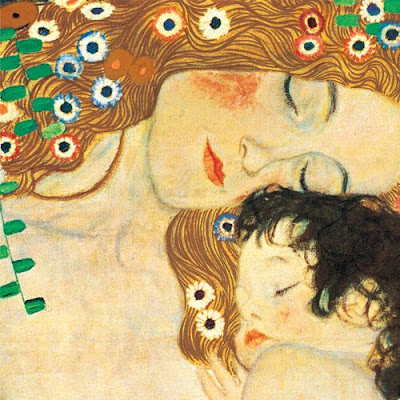Attachment = bidirectional bonding & trust
Children need family, not just for nutrition and safety, but also psychosocial needs like attachment, socialization and a sense of belonging.
Compared to our fellow denizens of Earth with their feathered wings or webbed toes, humans lavish a great deal of attention on relatively few offspring, and those offspring need every bit of that care for a long period of time. We don't kick fledglings out of the nest 21 days after birth, or go MIA long before fertilized eggs become tadpoles. Evolutionarily speaking, humans have babies when they do because it's the sweet spot of fetal growth v. maternal ability to provide growth requirements (& give birth safely). Though baby's brain (about 40% of an adult's) still needs years more to develop, baby is born when it's safe and relies on parents or guardians to protect, feed, and nurture baby until that brain matures sufficiently (arguably not until baby turns 30...)
Skin-to-skin bonding helps babies regulate their temperature and heart rate, decreases levels of stress hormones, and enhances immunity. Babies in orphanages (that are physiologically cared for--fed & cleaned) can literally die from lack of human touch. Children of all ages need affection from and connection with caretakers. While "bonding" is unidirectional, such as parents feeling affection towards an unborn baby, "attachment" is bidirectional, forming through repeated interactions between little ones and caretakers and the building of trust. Through having their needs met (or not), babies and children are taught/conditioned to trust their adults (or not).
Adults were supposed to be trustworthy. Society was supposed to do what's best for children and take care of them. If something terrible happens, hormonal & psychological links in those young brains can break. Once the foundation for trust and security is cracked, it can take a lifetime's struggle to heal the wounded psyche, if healing's at all possible.
Compared to our fellow denizens of Earth with their feathered wings or webbed toes, humans lavish a great deal of attention on relatively few offspring, and those offspring need every bit of that care for a long period of time. We don't kick fledglings out of the nest 21 days after birth, or go MIA long before fertilized eggs become tadpoles. Evolutionarily speaking, humans have babies when they do because it's the sweet spot of fetal growth v. maternal ability to provide growth requirements (& give birth safely). Though baby's brain (about 40% of an adult's) still needs years more to develop, baby is born when it's safe and relies on parents or guardians to protect, feed, and nurture baby until that brain matures sufficiently (arguably not until baby turns 30...)
Skin-to-skin bonding helps babies regulate their temperature and heart rate, decreases levels of stress hormones, and enhances immunity. Babies in orphanages (that are physiologically cared for--fed & cleaned) can literally die from lack of human touch. Children of all ages need affection from and connection with caretakers. While "bonding" is unidirectional, such as parents feeling affection towards an unborn baby, "attachment" is bidirectional, forming through repeated interactions between little ones and caretakers and the building of trust. Through having their needs met (or not), babies and children are taught/conditioned to trust their adults (or not).
Detail from Klimt's Mother & Child
Adults were supposed to be trustworthy. Society was supposed to do what's best for children and take care of them. If something terrible happens, hormonal & psychological links in those young brains can break. Once the foundation for trust and security is cracked, it can take a lifetime's struggle to heal the wounded psyche, if healing's at all possible.



Skin time is now my favourite time of the day. Who would've thought the day would come that I'd like to do nothing else but hold my tiny baby?
ReplyDelete